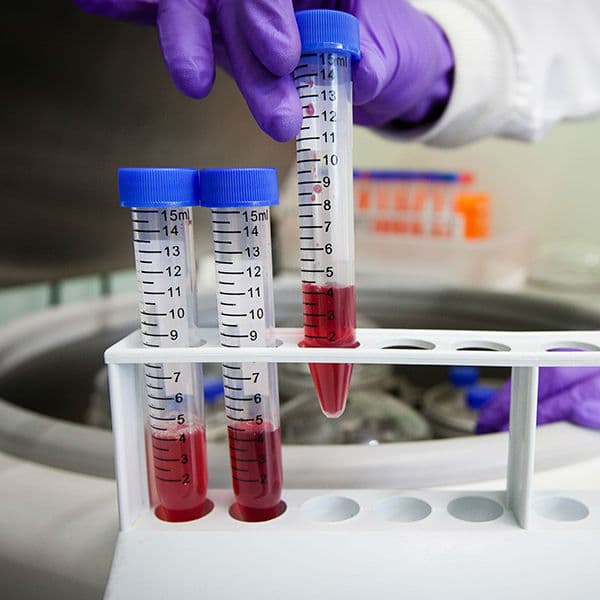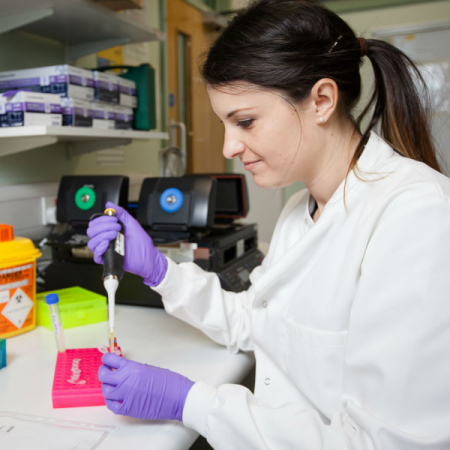Description
The course focuses on the genomics techniques used for DNA sequencing, including targeted approaches, whole exome and whole genome sequencing, and RNA sequencing. You will learn how to use methodologies and technologies to investigate genomic variation and examine the use of array-based methodologies and RNA sequencing in estimating levels of protein expression, micro RNAs and long non-coding RNAs. You will also develop an understanding of how to justify approaches to the bioinformatics analysis and interpretation of omics data.
Learn from leading experts in genomics about:
- Metabolomics and proteomics, which are important for the functional interpretation of genomic data and discovery of disease biomarkers.
- Strategies employed for evaluating pathogenicity of variants for clinical reporting.
- The basis of genotyping and detection of genetic variation.
- Whole exome and whole genome sequencing, including library preparation methods, sequencing chemistries and platforms.
- Methodologies to assess the transcriptome, including RNA expression profiling (expression array) and RNA sequencing.
- Methodologies to assess the metabolome and proteome.
- How information from the transcriptome, metabolome and proteome can be applied to the interpretation of genomic information.
- Approaches to the evaluation of pathogenicity of variants in the context of an NHS clinical report.
Learning outcomes
By the end of this module you will be able to:
- Critically evaluate a range of up-to-date genomic techniques and platforms used to interrogate targeted parts of the genome or the whole genome.
- Critically evaluate the application of current genomic techniques and technologies in clinical and research settings, using examples from cancer, common and rare inherited disease, and infectious disease.
- Critically evaluate a range of techniques used to assess the transcriptome.
- Evaluate the role of metabolomics and proteomics in the functional interpretation of genomic data.
- Justify the approaches to the bioinformatics analysis and interpretation of ‘omics’ data.
- Evaluate the approaches required to assess the pathogenicity of variants identified in whole genome sequencing and other genomic technologies.
















